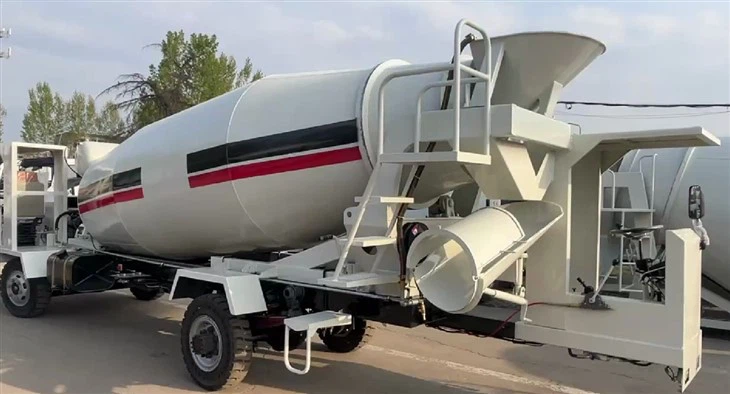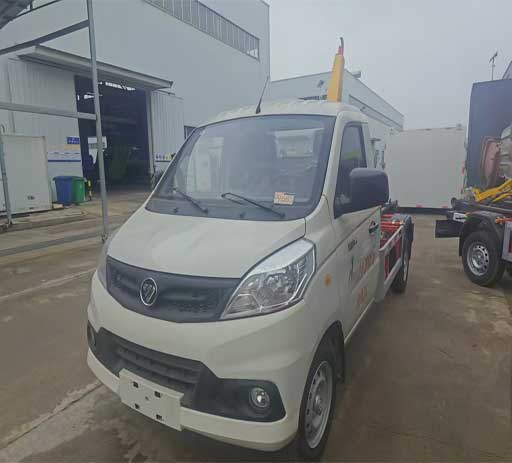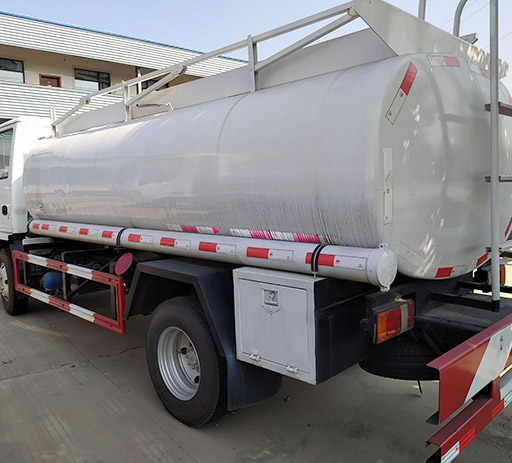Natural Gas Trash Trucks: The Future of Waste Management

Introduction
As cities and towns across the globe strive to achieve sustainability, natural gas trash trucks have emerged as a pivotal solution in modern waste management. These vehicles, powered by compressed or liquefied natural gas, provide an environmentally friendly alternative to traditional diesel-powered trash trucks. This article will explore the various facets of natural gas trash trucks, including their benefits, technology, economic impacts, and future outlook, serving as a comprehensive guide for those interested in the evolving landscape of waste collection and management.
Understanding Natural Gas Trash Trucks
What Are Natural Gas Trash Trucks?
Natural gas trash trucks are waste collection vehicles that utilize natural gas as their primary fuel source. Unlike conventional trucks that rely on diesel, these trucks leverage either compressed natural gas (CNG) or liquefied natural gas (LNG). This shift not only reduces harmful emissions but also contributes to a more sustainable approach to waste management.
The Technology Behind Natural Gas Trash Trucks
The technology used in natural gas trash trucks incorporates advanced engines designed to operate efficiently on natural gas. These engines are often optimized to reduce fuel consumption and minimize emissions. With the integration of sophisticated components such as turbochargers and electronic fuel injection systems, these trucks achieve impressive performance while adhering to environmental regulations.
CNG vs. LNG: Which is Better?
CNG and LNG are two different forms of natural gas, each with its own benefits and drawbacks. CNG is compressed at high pressures and stored in a gaseous state, while LNG is liquefied, allowing for a denser storage solution that is often more suitable for long-distance transportation. The choice between the two depends on a variety of factors, such as route length, storage space, and refueling infrastructure.
Benefits of Natural Gas Trash Trucks
Environmental Advantages

One of the most notable benefits of natural gas trash trucks is their reduced environmental impact. Compared to diesel trucks, natural gas vehicles emit significantly lower levels of greenhouse gases and other pollutants. Studies indicate that natural gas trucks can reduce carbon dioxide emissions by approximately 20-30% and nitrogen oxides by as much as 90%.
Cost Efficiency
Operating costs for natural gas trash trucks can be lower than those of diesel trucks. Natural gas is often cheaper than diesel, and since natural gas engines tend to require less maintenance, fleets can save significantly over time. Public and private entities may also benefit from incentives and rebates aimed at promoting clean fuel vehicles.
Reduced Noise Pollution
Natural gas engines typically operate more quietly than diesel engines, translating to reduced noise pollution in residential areas. This is particularly beneficial during early morning waste collection operations, leading to less disturbance to local communities.
Challenges in Implementing Natural Gas Trash Trucks
Infrastructure Limitations
Despite their advantages, the widespread adoption of natural gas trash trucks faces logistical challenges. Refueling infrastructure for natural gas vehicles can be limited, particularly in rural or less-developed regions. Investment in refueling stations is essential for the successful deployment of these vehicles.
Higher Initial Costs
The initial purchase price of natural gas trash trucks is typically higher than that of traditional trucks. While costs have been decreasing, the upfront investment can be a barrier for some municipalities and waste management companies, requiring careful financial planning and analysis.
Real-World Examples of Natural Gas Trash Truck Implementation
Case Study 1: City of Los Angeles
Los Angeles has made significant strides in incorporating natural gas trash trucks into its fleet. The city’s fleet includes hundreds of CNG-powered garbage trucks, contributing to lower emissions and improved air quality. The transition has also resulted in cost savings on fuel and maintenance over the years.
Case Study 2: Waste Management, Inc.

As one of the largest waste management companies in North America, Waste Management, Inc. has invested heavily in natural gas trucks. The company operates a fleet of over 6,000 natural gas vehicles across numerous locations, significantly reducing their carbon footprint while enhancing operational efficiency.
Future Trends in Natural Gas Trash Trucks
Advancements in Engine Technology
The future of natural gas trash trucks is closely tied to ongoing advancements in engine technology. Manufacturers are continuously developing more efficient and powerful engines that offer improved performance and reduced emissions. These innovations will play a key role in making natural gas vehicles even more attractive for waste management operations.
Integration with Smart City Initiatives
As cities become smarter through the use of technology, natural gas trash trucks are likely to be integrated into these initiatives. This may include real-time data tracking for route optimization, vehicle performance monitoring, and emissions tracking, enabling municipalities to manage waste more effectively while minimizing their environmental impact.
| Feature | Natural Gas Trash Trucks | Diesel Trash Trucks |
|---|---|---|
| Emissions | Lower CO2 and NOx emissions | Higher emissions |
| Fuel Cost | Generally cheaper | Higher |
| Noise Level | Quieter operation | Noisier operation |
| Maintenance | Lower maintenance costs | Higher maintenance costs |
Practical Tips for Transitioning to Natural Gas Trash Trucks
Evaluation of Local Infrastructure
Before transitioning to natural gas trash trucks, it’s crucial to assess the availability of refueling stations in your area. This evaluation will help determine whether natural gas vehicles are a viable option for your fleet.
Conduct Cost-Benefit Analysis
Conducting a thorough cost-benefit analysis can help stakeholders understand the potential financial implications of switching to natural gas. This analysis should include upfront costs, ongoing fuel and maintenance expenses, and potential savings from incentives and rebates.
Engage Stakeholders and Community Members

Involving local stakeholders and community members in the decision-making process is key to ensuring transparency and gaining support for the initiative. Provide clear information about the environmental and economic benefits associated with natural gas trash trucks to foster community acceptance.
FAQ Section
1. What are the main differences between CNG and LNG?
CNG is stored as a gas at high pressure, while LNG is stored as a liquid at low temperatures. CNG is typically used for short routes, while LNG is preferred for longer distances due to its higher energy density.
2. Are natural gas trash trucks more expensive than diesel trucks?
While the initial purchase price of natural gas trucks may be higher, operating and maintenance costs are often lower, leading to potential savings in the long run.
3. How do natural gas trash trucks contribute to reducing air pollution?
Natural gas trucks produce significantly lower emissions of harmful pollutants compared to diesel trucks, including nitrogen oxides and particulate matter, contributing to better air quality.
4. Can existing diesel trucks be converted to run on natural gas?
Yes, many diesel trucks can be retrofitted to operate on natural gas. However, the feasibility and cost-effectiveness of this conversion depend on various factors, including the vehicle’s age and condition.
5. What incentives are available for adopting natural gas vehicles?
Various local, state, and federal programs offer incentives such as grants, tax credits, and rebates to encourage the adoption of natural gas vehicles. Researching available options in your area is essential for maximizing financial benefits.
6. How does the noise level of natural gas trucks compare to that of diesel trucks?
Natural gas trucks generally operate more quietly than diesel trucks, making them a preferable option for waste collection in noise-sensitive areas, especially during early morning hours.
